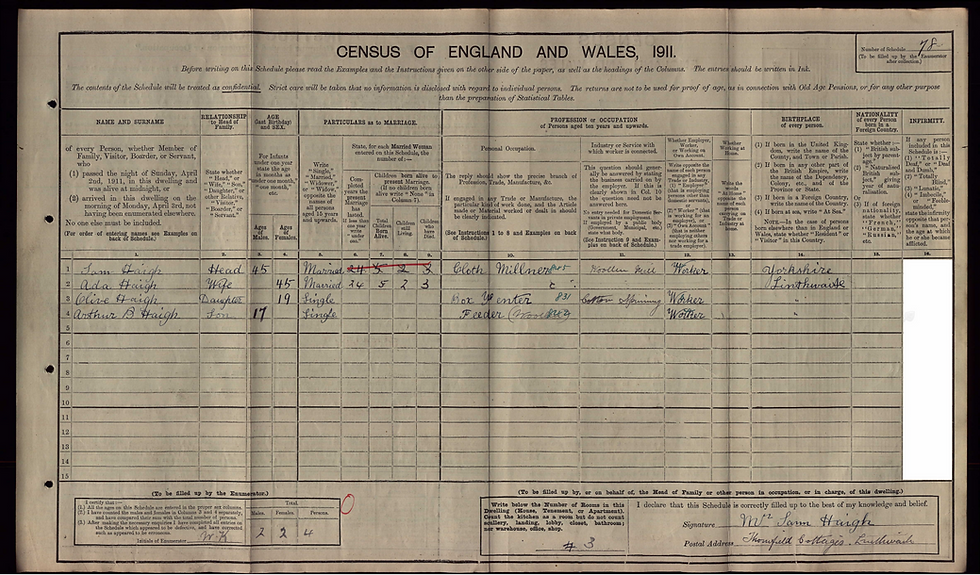Leaving our digital footprints for tomorrows generation
- David Brougham

- Sep 16, 2022
- 2 min read
Updated: Sep 3

When I last moved house it made me think about the good memories and of course, some not so good. 22 years was a long time in one house - a quarter of the average life. Yet in the reaches of history, it isn't even a pin prick. The 1901 Census reveals that Alice King aged 31, lived in my house with her 2 daughters, Doris W, aged 6 and Gladys R, aged 4. Although Mrs King is described as married, there is no record of her husband. Where could he have been I wonder? Mrs King was a shoe maker which was not surprising for Leicester given it was one of the main trades in the city. How would the house have looked then? What memories would they have to look back on? Wouldn't it be good to know how others have lived in the same space as you? As future generations look back and research their family trees to what extent will they be able to find our modern-day footprints? While in my current house I've filled in 3 census forms. With digital indexing and storage of this information you would think this data will be readily available to our ancestors. How many people though have moved around between census returns, been missed and so the trail for future family historians will run cold? Even with the age of computers, how much information will be kept?
Photos for example, digital technology allows us to take so many, about evey facet of our lives, and we store loads on our computers and CDs. How many of these will make it into the hands of our ancestors, or in this throw away age, will the digital photos get lost as laptops or mobile phones break, and online accounts get closed? When you die who will be able to access your life long collection of photos you so carefully stored in the cloud for security, who will have your password, be able to get through all your multifactor identification tests and biometric security? As you stop using and paying for these services they will be closed down. Data protection laws require data to be discarded when no longer required. Our historical footprints could be less than you think.
I have this theory that although we live in the information age - it is an information age for today and not for tomorrow. Our digital footprint today is huge, but in reality, will it be short lived? Only time will tell - and no doubt I won’t be here to find out.
There are things you can do now that will help those left beihind to manage your digital legacy. Facebook allows your page to be memorialised after you've gone which preserves your content and allows people to leave memorial messages. Ideally you will appoint someone to manage your account. You need to plan this now though. You need to give thought to your online photo libraries - considering sharing access with a loved one.
The Digital Legacy Association in the UK has more on this topic. The Digital Legacy Association advise, campaign, and raise awareness about the importance of digital assets and digital legacy planning. You can check out their site here.



